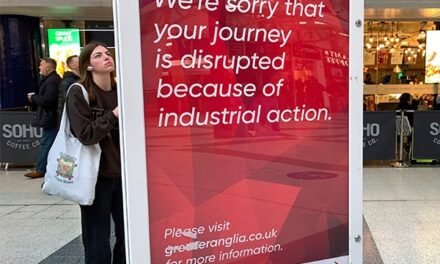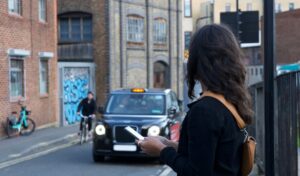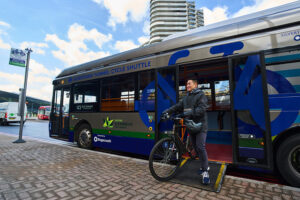I am writing on behalf of London TravelWatch to object to TfL’s proposals to withdraw Day Travelcards in London. The withdrawal is likely to have many negative consequences for passengers including making travel less accessible and less affordable. These risks deter people from using public transport at a time when the industry should be encouraging passengers back onto it.
While we understand TfL are facing significant financial pressures, we believe removing a popular, convenient, and inclusive travel option for Londoners and visitors is not the solution. Whether it’s to get to work, education, healthcare or to see family and friends, public transport is a crucial and necessary service for people and the economy.
The Day Travelcard, available as paper tickets bought by cash or card, provides passengers with the benefit of buying one ticket that offers unlimited travel on most TfL services for a day. In this way it provides a more cost-effective and accessible option for people travelling. There were 15 million Day Travelcards sold in 2022/23, which highlights the demand of this ticketing option. Additionally, while TfL note that sales of paper-based Day Travelcards for 2022/23 are around 35% lower than in 2018/19, they are continuing to recover since the pandemic. Total paper-based Day Travelcard sales in Q3 2021/22 were 3.2 million, rising to 4.1 million in Q3 2022/23[1], a 28% increase – indicating a continued desire for access to this ticketing option.
Withdrawing the Day Travelcard would mean that passengers no longer have the flexibility to choose between unlimited peak travel or unlimited off-peak travel. Passengers traveling into London will also no longer be able to buy an “add-on” of a Day Travelcard to their rail ticket, which can reduce travel costs (particularly if they have a railcard) and make it easier to move between modes. Instead, people will have to pay for each journey they make using Pay as You Go (PAYG) or by buying paper tickets, with separate train tickets if needed.
Advertisement
We are concerned that removing the option of buying a Day Travelcard will increase the cost of travel, reduce the accessibility of public transport, and prevent some people from travelling completely.
Increasing the cost of travel
The withdrawal of the Day Travelcard will have negative cost implications for some passengers. The current system is beneficial for people who use it, with add-ons to train tickets often sold at a discounted rate.
Example 1: An off-peak Day Travelcard ticket from Brighton to London costs £40.90, compared to £35.40 for an off-peak return. For this extra £5.50 they receive unlimited travel within zones 1-6 on most TfL and National Rail services. If the Day Travelcard is no longer an option people may have to pay up to £14.90 (the PAYG cap for zones 1-6) for equivalent travel once they’re in London, plus their train ticket. This would be a total of £50.30, 23% more than the current Day Travelcard. And while a significant number of passengers may spend less on PAYG than the £14.90 cap, anyone making more than two Zone 1 tube journeys would still pay more than they would have for a Day Travelcard.
Railcards and concessions can also be used to purchase Day Travelcards, giving holders a significant discount, and again providing a more affordable travel option. People who will instead have to use PAYG contactless payments won’t be able to benefit from this as you cannot attach concessions or railcards to contactless payment options, such as age-related discounts. Similarly, while some concessions can be linked to Oyster cards, not all can.
Example 2: A young adult with a 16-25 railcard and no Oyster card travelling from Slough into London can currently buy an off-peak Day Travelcard for £11.70. Without this they would have to buy a £8.05 return train ticket with their travelcard, and then a PAYG contactless cap of up to £14.90, totalling £22.95 and an up to 96% increase. Even with an Oyster card linked to their railcard (reducing the PAYG off-peak cap to £9.80) they could still be facing an increase of £6.15, or 53%.
We are particularly concerned about increased costs giving the cost-of-living crisis many Londoners are already facing. Indeed, we’ve received concerns about the proposals from passengers who are worried given many people “are already struggling financially”. With some relying on a Travelcard to get to and from work, including key workers, there are concerns that this change will leave them worse off, or unable to afford travel at all.
Reducing the accessibility of travel
While TfL provide the option to PAYG, this payment method is not an inclusive option for some people and creates more barriers to travel. Notable examples of those who are likely to be disproportionately impacted by the withdrawal of Day Travelcards include:
- The digitally excluded and disadvantaged. Our latest research into this shows that these are often people who are already facing disadvantage in other ways, with older people, Disabled people, and people on a lower income more likely to be digitally excluded. As Day Travelcards do not require internet or bank access, they present a more accessible ticket option than PAYG or Oyster.
- Nearly 4 in 10 digitally excluded and disadvantaged people agree that the use of technology has made things harder for them to travel, and digitally excluded people are already more likely to make fewer journeys across London. There are concerns from some that as the use of digital tools increase, other alternatives that they depend on are disappearing. The proposed withdrawal of Day Travelcards in favour of contactless and Oyster would make this worry a reality.
- Disabled people. This is likely to negatively impact them in a variety of ways. For example, people with a Disabled Persons Railcard would no longer be able to buy an accompanying carer or companion a discounted Off-Peak Day Travelcard, incurring extra fees. Concerns have also been raised by those who often “time out” of their journeys when using the Underground, which results in them being charged the maximum fare. As they can only challenge this 3 times a month, they use Day Travelcards instead to avoid this issue.
- Those without access to a bank card, including children, young school groups and tourists. With Day Travelcards and contactless payment not an option, they will have to rely on more expensive paper tickets for each individual journey or go through the extra administrative process of acquiring an Oyster card. This is a particular problem for those who want to use buses, which do not accept cash payment.
For example, a parent travelling with two children who only has one bank card would be unable to use contactless to pay for all of them. This means they would either have to buy more expensive paper tickets each time they use transport or get an Oyster card for each child. However, this also has an extra cost and is considerably less convenient, requiring the admin of purchasing and registering the card, and topping up the funds. If they want to get a child discount, they have to register for a Zip Oyster, which can only be done online, and wait for it to be issued.
Prevent some people from travelling completely
Fundamentally, the withdrawal of Day Travelcards would create additional expense, inconvenience, and barriers to travel. While many may be able to use alternatives, for some it may be enough to stop them traveling completely. The additional costs some will face to travel in absence of a Day Travelcard may be unaffordable for those already under financial pressure. Those without contactless payment may find it too difficult to obtain an Oyster card, particularly if they do not live in London. This would also limit the ability for some to use buses given they do not accept cash payment, which is especially concerning given it is the most affordable and accessible form of transport in the city. Again, the groups most likely to be prevented from travelling are also those who are already facing disadvantage in other areas and can least afford it.
Advertisement
Transport should be easy, affordable, and accessible to use. In a time where travel is becoming more expensive, TfL should be reducing barriers and encouraging people to use public transport instead of making it more difficult. This is particularly timely ahead of the expansion of ULEZ, when Londoners will be looking for more sustainable and affordable alternatives to using their car.
Therefore, we strongly oppose this proposal. The withdrawal presents more barriers than benefits for passengers, with groups such as the digitally excluded, Disabled people, families and lower income Londoners disproportionately affected. The Day Travelcard is a vital and convenient travel option for passengers in and around London.
While we understand TfL are under financial pressure to make savings, we urge you to seek alternative solutions that preserve the affordability, accessibility, and inclusivity of public transport in London. The £500 million that TfL hold in cash reserves for liquidity, plus the £500 million facility provided by the Mayor’s budget, indicate there is opportunity to maintain this important ticket option, and as such we hope TfL’s reconsider their proposal to withdraw Day Travelcards.













